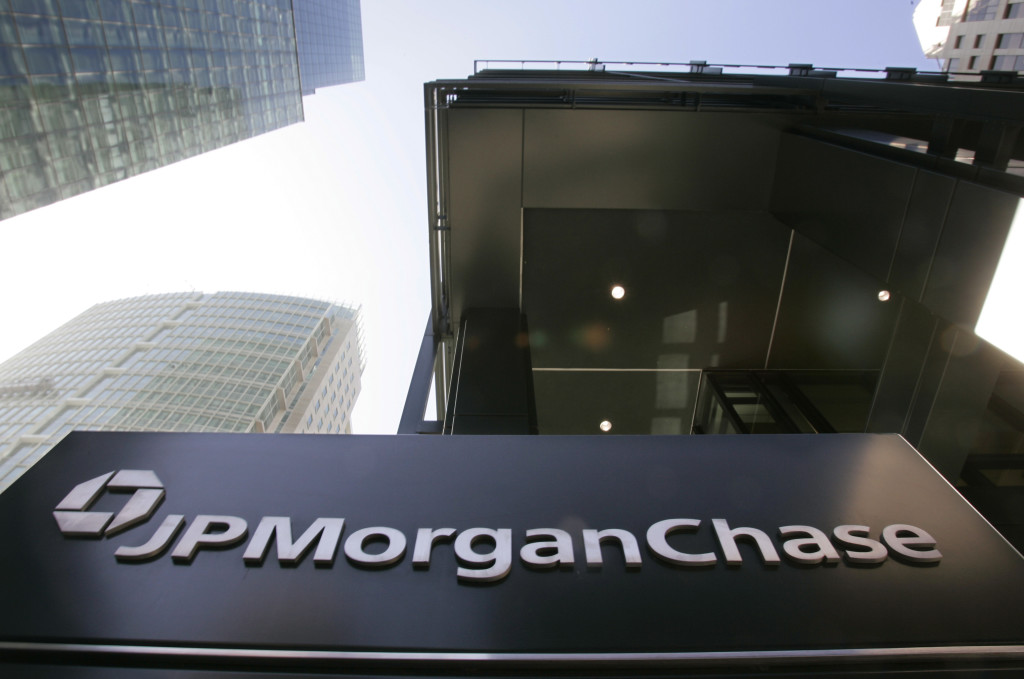New Mortgage Task Force Charges JPMorgan With “Systemic Fraud”

October 2, 2012
Share
A federal mortgage task force established by the Obama administration to investigate alleged frauds involving home loans has filed its first charges connected to the 2008 financial crisis.
In a civil suit filed Monday by New York Attorney General Eric Schneiderman, a co-chair of the task force, JPMorgan Chase is charged with “a systemic fraud on thousands of investors” in mortgage-backed securities between 2005 and 2007.
The securities at the heart of the case were actually issued by the former investment bank Bear Stearns, which JPMorgan acquired in March 2008 with more than $30 billion in federal assistance. The task force’s 31-page complaint alleges that Bear Stearns and its lending unit, EMC Mortgage, defrauded investors by packaging “defective loans” into mortgage-backed securities, and then selling them with the knowledge that the underlying assets were likely to default.
Watch the back story behind JPMorgan’s purchase of Bear Stearns:
The complaint cites emails between Bear Stearns executives that prosecutors say demonstrates knowledge that the bank was selling underperforming investments. In one exchange, for example, a Bear employee refers to one of the firm’s securities as a “sack of s***” and a “s*** breather.”
The suit further alleges that Bear “systemically failed to fully evaluate the loans” it was packaging into mortgage-backed securities, and kept investors “in the dark” about its review process.
In all, investors lost approximately $22.5 billion, according to the complaint, or roughly one-quarter of the original principal balance of $87 billion.
A spokesman for JPMorgan said that the bank was “disappointed that the New York A.G. decided to pursue its civil action without ever offering us an opportunity to rebut the claims and without developing a full-record — instead relying on recycled claims already made by private plaintiffs.” The bank said that it intended to contest the charges.
The task force that brought the suit — the Residential Mortgage-Backed Securities Working Group — was announced by President Obama during his State of the Union address in January. “This new unit will hold accountable those who broke the law, speed assistance to homeowners and help turn the page on an era of recklessness that hurt so many Americans,” the president said.
To date, however, both state and federal authorities have struggled to successful prosecute any Wall Street banks or their executives for alleged misconduct during the crisis. Regulators have come under criticism for not levying large enough fines in their enforcement efforts, as well as for not pursuing more criminal cases.
With the statute of limitations approaching to bring new charges fast approaching, the task force’s case marks a shift in approach on two fronts. As Gretchen Morgenson of The New York Times points out, the suit does not target a particular deal or individual. “Rather, the suit contends that the improper practices were institutionwide and affected numerous deals during the period.”
The lawsuit also makes use of New York’s Martin Act, which affords prosecutors broad flexibility by not requiring them to prove that a defendant intended to defraud investors.
“Finally! A major Wall Street bank has been sued for fraud for its reckless lending that helped cause the 2008 financial collapse,” Dennis Kelleher, president of the watchdog organization Better Markets, said in a statement. “Wall Street is a high crime area, but no one has been held accountable. The creation, sale and distribution of worthless toxic mortgages was at the core of the financial crisis,” Kelleher said.
The suit does not seek a specific dollar amount in damages. Instead, prosecutors are asking JPMorgan to relinquish all proceeds from the sale of the bonds in question, and restitution for investors caught in the alleged fraud.

Related Documentaries
Latest Documentaries
Related Stories
Related Stories
Explore
Policies
Teacher Center
Funding for FRONTLINE is provided through the support of PBS viewers and by the Corporation for Public Broadcasting, with major support from Ford Foundation. Additional funding is provided the Abrams Foundation, Park Foundation, John D. and Catherine T. MacArthur Foundation, Heising-Simons Foundation, and the FRONTLINE Trust, with major support from Jon and Jo Ann Hagler on behalf of the Jon L. Hagler Foundation, and additional support from Koo and Patricia Yuen. FRONTLINE is a registered trademark of WGBH Educational Foundation. Web Site Copyright ©1995-2025 WGBH Educational Foundation. PBS is a 501(c)(3) not-for-profit organization.





















